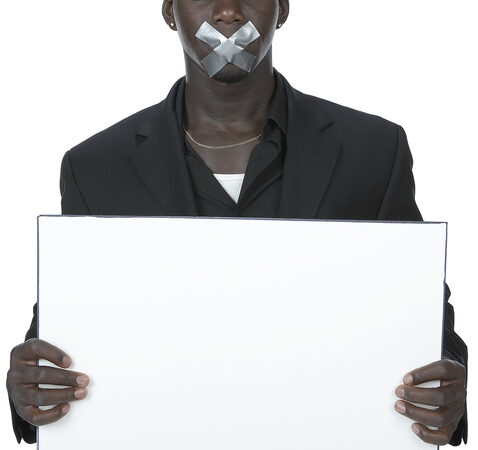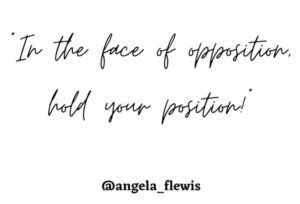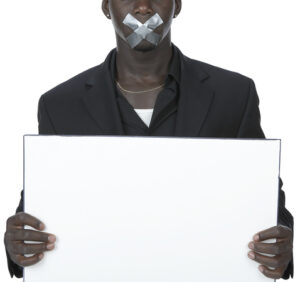Op-Ed: Media Censorship: What are the consequences?

–Contributing Writer, Aneesa Lewis
The idea of “controlled information” has been a hot topic in recent years. The reason has been attributed to the rise of social media, Artificial Intelligence and educational institutions playing a role in how information is distributed. How much and how little censorship is needed in a society that is now consuming and sharing information every second of the day?
Censorship is the suppression or prohibition of any parts of books, films, news, etc., considered obscene, politically unacceptable, or a threat to security. With both censorship and freedom of speech coexisting, is it possible that the action of censorship violates this right?
Let’s explore this notion.
Debates arise when political and business organizations have a hand in controlling the information shown or discussed in didactic-based institutions and public media. When information becomes controlled in this way, it becomes tainted. Such censorship should not be upheld in learning curriculums and public media forums because it limits access to information, infringes on freedom of speech, and perpetuates political bias.
With the rise of social media, it is evident that engaging, entertainment-based forums have guidelines that you have to follow to have access to their platform. This is one example of censorship that is meant to prevent content that falls outside of pre-set guidelines from being shared. Such censorship can protect the public, while also narrowing one’s perspective on a subject. Censorship also causes context on a topic to be distorted or missing. This creates a bias towards an issue and utilizes the audience’s ignorance to push an agenda.
News outlets such as FOX and CNN get about 3.4 million viewers on a weekly average. These mass media outlets have the attention of millions of citizens and control the information they receive. Censorship has the biggest impact on non-social media such as public broadcast stations, and non-engageable forums such as newspapers and online reports. This is a hazard to the public because the format in which the information is displayed is indisputable or matter-of-fact. As a result, owners or investors of these forums have the power to mass communicate their bias under the guise of authenticity.
A journalist by the name of Caruana Galizia sought to challenge the authoritarian media. Although her expose led to a massive political shift, her efforts ended in her death. An article, Journalism Might Be Our Only Hope to Secure Human Rights posted on The Human Rights Organization’s forums tells her story. The article states “Her work on the Panama Papers was so powerful that it helped trigger an early election in 2017. The Panama Papers were 11.5 million leaked documents of data published in 2016, which detailed financial information for offshore entities.” (HRO 2023) Caruana Galizia’s research turned out to be salient to the public.
Her work greatly swayed the political atmosphere. Information like this is important to have access to so the public can make informed, unbiased, well-rounded political decisions. Caruana Galizia’s research shows the importance of sharing ideas freely and how crucial the information that was being censored can be. Although her research sparked political change, Galizia’s life was an expense.
It is important to discuss the horrific repercussions of the violation of mass media censorship. A quote from the previous article states, “They shut up Daphne simply because she was getting too close to the truth,” he said, “It’s just not the fact that she was murdered, but there was a concerted attempt to cover up for the perpetrators” (HRO 2023). The tragedy that became of Caruana Galizia was purely out of the suppression of freedom of speech. This shows the lengths censorship reaches and the consequences if you refuse to comply.
On a simplistic level, this journalist was violently murdered after exercising her right to freedom of speech and exposing atrocities of political power to the masses in a non-violent paper publishing. The perpetrators felt justified enough to silence her permanently because her views did not fit the narrative they wanted to perpetuate. This is a prime example of the threat that censorship has on free speech and even livelihood when it’s controlled by the media’s biases and agenda.
Alarmingly, censorship like this influences many institutions. Censorship in schools has grown more rigorous in the last few generations. This includes literature such as How To Kill A Mocking Bird, The Color Purple, and The Great Gatsby to name a few. Many of the books censored in education discuss racial injustice or literature that coveys animosity to the social class system. Although schools are places that are supposed to educate, censorship has created a perpetuation of ideas to shy away from the atrocities of history and shy away from literature that depicts that. W.E.B Dubois, an American sociologist studied the effects of censorship in schools.
At the time, W.E.B Dubois noticed the lens through which the atrocities of slavery had been viewed, and how it was being taught to future generations. W.E.B comments that “We minimized the slavery controversy which convulsed the nation from the Missouri Compromise down to the Civil War. On top of that, we passed by Reconstruction with a phrase of regret or disgust.” (W.E.B 1935) Despite education’s goal, in essence, is to educate, terms such as “regret” and “disgust” reflect a regressive outlook. W.E.B uncovers established political bias surrounding the teaching of “reconstruction” by referring to the lens through which the subject is looked at by those who have the authority to censor this information.
He further elaborates by stating, “[I] admit frankly that we are using a version of historic fact to influence and educate the new generation along the way we wish. It is propaganda like this that has led men in the past to insist that history is “lies agreed upon”; and to point out the danger in such misinformation.” (W.E.B 1935) W.E.B states that we often tend to ignore humanity’s atrocities that affect an entire population of people. he states that “reconstruction” is taught in colleges but the historical context is left out in favor of national image. He calls this out showing the hypocrisy of the study of history if its contents can be altered by those in power, diminishing it as pure propaganda.
W.E.B’s analysis shows how censorship in schools is counterintuitive to the process of education. This is because censorship in schools gives authority to spread misinformation, if given the opportunity. The education curriculum is ruled and censored on a state-by-state basis which can also be destructive since the political views and social climate vary from each state. It is evident that throughout history allowing someone to have the authority to choose the information perpetuated in schools leads to political bias and false narratives.
Despite the consequences of censorship as a whole, there are some scenarios where it is justified. Engagement-based media (social media) is one of those exceptions. Public engagement and the sharing of information is the foundation of these platforms. Instagram, one of the top 4 social media platforms alone has over 2.35 billion active users. As a result, there is a constant sharing of opinions, posts, and stories that anyone regardless of age is exposed to. An argument can be made that censorship is necessary for the well-being of this online community. Due to no age restrictions on these platforms, there is various content that is harmful to the development of minors.
Adding to this risk, aspects of these forums, such as hate speech can also be accessed and distributed. This can be detrimental to various targeted communities and the development of adolescence. Sexually explicit content, hate speech, and defamatory content should all be subject to censorship. However, the majority of these media platforms are owned and operated by the democratic political party and studies show that over half of social media users believe that media platforms censor opposing parties’ beliefs.
According to the article, Support for more regulation of tech companies has declined in the U.S., especially among Republicans, it states “Majorities across political parties and ideologies believe these sites engage in political censorship, but this view is especially widespread among Republicans. Around nine-in-ten Republicans (92%), including GOP leaders, say social media sites intentionally censor political viewpoints that they find objectionable, with 68% saying this is very likely the case.” (PRC 2022) Across the board, over half the social media users feel that social media uses censorship to perpetuate political views. The article further states, “The share of Democrats who perceive censorship on the part of social media companies has risen since 2020 and is now comparable to the share who did so in 2018 (66% today vs. 62% then).”(PRC 2022) This shows that as time moves forward users of social media are becoming more aware of the corruption under the guise of censorship on both parties.
Although censorship used in social media is beneficial when it comes to maintaining the innocence of adolescents and the well-being of the community, it is not justifiable when it continues to promote political views and biases. This furthers the argument that censorship should not be upheld in didactic-based institutions and public media.
Overall, there is no clear solution to the regulations of censorship in social media. Nor is there any evidence that the dangers of censorship can be avoided as of yet. However, because of Caruana Galizia’s research along with W.E.B Dubois’s analysis, there is hope that awareness of the possible manipulation of the information is becoming widespread. It is important that we as citizens regardless of country, evaluate our sources. It is also crucial to take the time to educate ourselves with information from many different perspectives to better understand the world around us. As a whole, it is indisputable that the effects of censorship causes more harm than good. It infringes on freedom of speech, limits information to the public, and promotes political bias that skews our perception of the world and those in it.





